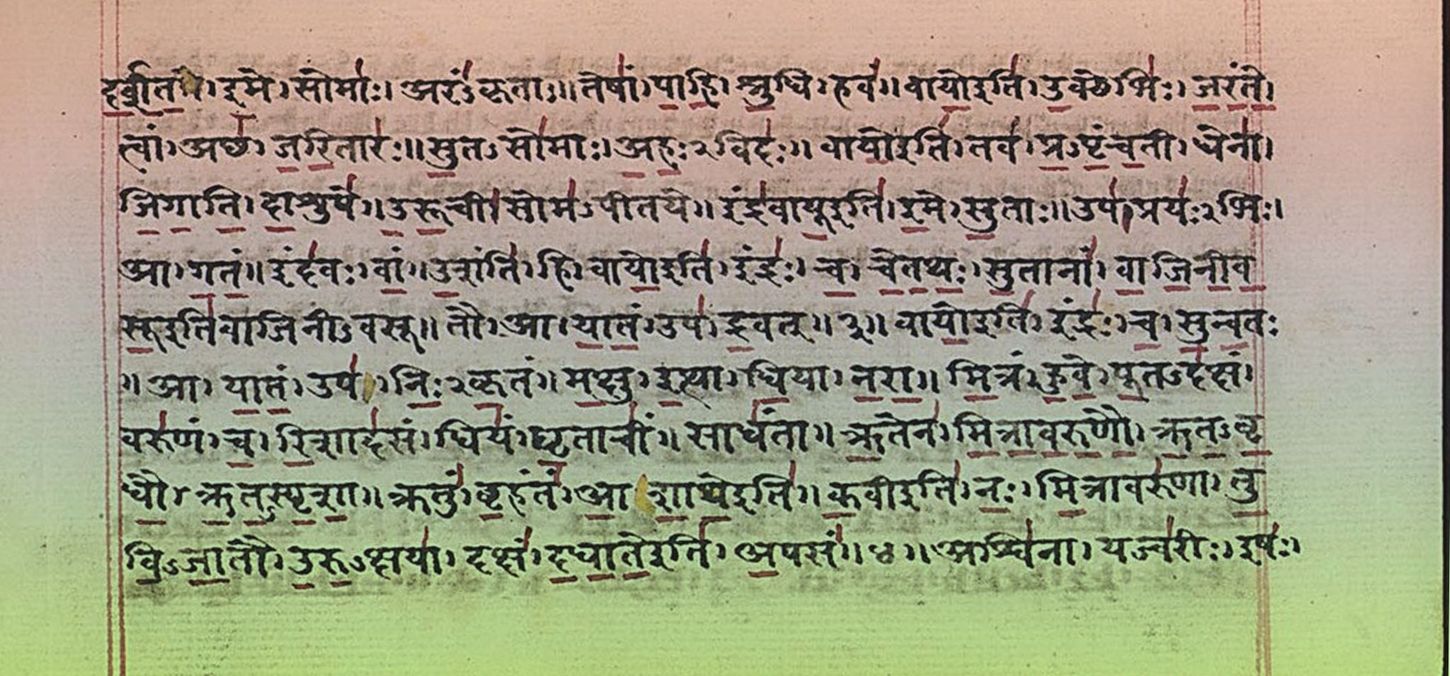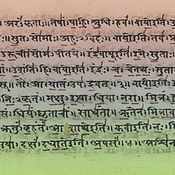
Lerne mit Dr. Ronald Steiner diesen Abschnitt genauer kennen.
Er erläutert den Sinn sowie den Text und Du kannst ihn mit ihm im Triṣṭubh / Jagatī Metrum und dann im Anuṣṭubh Metrum rezitieren. Abschließend hast Du die Gelegenheit, den Sinnabschnitt in einer kleinen Meditation auf Dich wirken zu lassen.
Hier geht es zum Video >>
Wo Agni aus dem Reibholze
Entspringt, wo Vâyu tritt hinzu,
Und wo auch Soma quillt reichlich,
Da entwickelt das Manas sich.
Paul Deussen - 1897
Where the fire is rubbed 3,
where the wind is checked,
where the Soma flows over,
there the mind is born.
Max Müller - 1879
| 3: | That is, at the Soma sacrifice, after the fire has been kindled and stirred by the wind, the poets, on partaking of the juice, are p. 241 inspirited for new songs. Saṅkara, however, suggests another explanation as more appropriate for the Upanishad, namely, 'Where the fire, i.e. the Highest Self, which burns all ignorance, has been kindled (in the body, where it has been rubbed with the syllable Om), and where the breath has acted, i.e. has made the sound peculiar to the initial stages of Yoga, there Brahman is produced.' In fact, what was intended to be taught was this, that we must begin with sacrificial acts, then practise yoga, then reach samâdhi, perfect knowledge, and lastly bliss. |
Durch Savitar, durch seinen Trieb
Freut des Gebets, des alten, euch;
Wenn dort ihr euren Stand nehmet,
Befleckt euch früh'res Werk nicht mehr.
Paul Deussen - 1897
Let us love the old Brahman by the grace of Savitri;
if thou make thy dwelling there, the path will not hurt thee 1.
Max Müller - 1879
| 1: | We must read krinavase, in the sense of 'do this and nothing will hurt thee,' or, if thou do this, thy former deeds will no longer hurt thee. |



 Dr. Ronald Steiner
Dr. Ronald Steiner
 Nils Jacob Liersch
Nils Jacob Liersch

Nachrichten und Bewertungen